Philippine Budget Secretary Benjamin Diokno presented the 2017 Philippine budget to the leadership of the House of Representatives on Monday and, true to the campaign promises of President Rodrigo Duterte, it focuses additional funding in key the areas of education, agriculture, social services, and infrastructure.
“I can characterise it as saying we’re putting our money where our mouth”, Mr Diokno said, adding that the 2017 Philippine budget “is consistent with President Duterte’s ten-point agenda.”
Totalling $72.23 billion (P3.35 trillion), an 11.6 per cent increase over the 2016 Philippine budget of $64.68 billion (P3.002 trillion), next year’s Philippine budget has been described as ‘a budget for real change’.
However, ‘real change’ doesn’t come without a cost and the 2017 Philippine budget will see the budget to gross domestic product (GDP) ratio increase from 20.1 per cent to 20.4 per cent and push the trade deficit from the current 2 per cent to 3 per cent of Philippine GDP.
In his budget message to Congress, Philippine President Rodrigo Duterte reminded lawmakers of the shared responsibility in ensuring prompt and efficient delivery of basic services to the people.
“I was elected to bring forth real change in the government… Real change, as I said, begins with us and in us. We must remind ourselves of this basic principle: Our people, through their taxes, provide the lifeblood of the government. They are the reasons for government’s very existence. Our people expect no less from us,” Mr Duterte said.
Social Services Get Lion’s Share of 2017 Philippine Budget
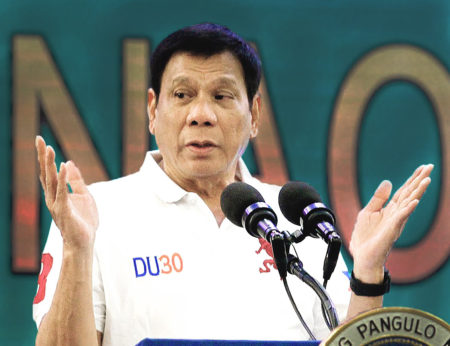
True to promises made while on the hustings and subsequent to being sworn in as the Philippines 16th president, the Duterte administration’s first budget sees the largest chunk earmarked for social services. Major beneficiaries include the Department of Health (DOH), Department of Social Welfare and Development (DSWD), Department of Education (DepEd), and Department of Labor and Employment (DOLE).
Combined the four departments will receive $29 billion (P1.345 trillion) representing 40 per cent of the budget, an increase of 20.13 per cent over the $24.14 billion (P1.12 trillion) allocation they received this year.
The rest of the pie will be shared by economic services such as agriculture and agrarian reform, and trade and industry who, among others, will receive $19.9 billion (P923.954 billion) or 27.58 per cent of the total. General public services such as administration and public order and safety will receive $12.54 billion (P581.835 billion) or 17.37 per cent. Debt servicing will account for a further $7.21 billion (P334.877 billion) or 10 per cent of the 2017 Philippine budget, while defense spending will account for $3.18 billion (P147.762 billion) or 4.41 per cent.
Philippine Education Gets 31% Boost in Budget
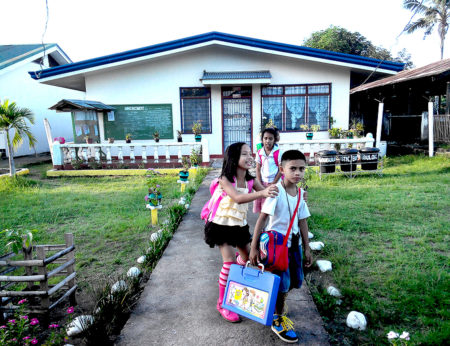
Among individual agencies the Department of Education received the highest budget at $12.22 billion (P567.5 billion), a 31 per cent increase over its budget this year of $9.34 billion (P433.3 billion). Included in the total is a $60.37 million (P2.8 billion) allocation to the miscellaneous personnel benefits (MPB) fund for the hiring of 53,831 new teachers, the construction of 47,000 classrooms, and to assist 2.7 million students who will be diverted to private schools as part of the Philippines K-12 programme (See: Weighing The Benefits of The Philippines K-12 Programme).
The Department of Social Welfare and Development will receive $2.79 billion (P129.9 billion) from the proposed budget, $409.40 million (P19 billion) more than this year’s allocation of $2.38 billion (P110.9 billion).
Of the proposed Department of Social Welfare and Development budget, $1.69 billion (P78.7 billion) will go to the Pantawid Pamilya Pilipino programme (4Ps), a conditional cash transfer program that aims to eradicate extreme poverty in the Philippines by investing in health and education, particularly in ages 0–14.
Despite rumours that the Duterte administration was going to discontinue the programme, implemented during the presidency of Gloria Macapagal-Arroyo and which now operates in 79 provinces covering 17 regions, Mr Duterte expanded it by adding a $506.37 million (P23.5 billion) rice allowance for its more than four million beneficiaries.
Philippine Infrastructure Spending Boosted 13.8%
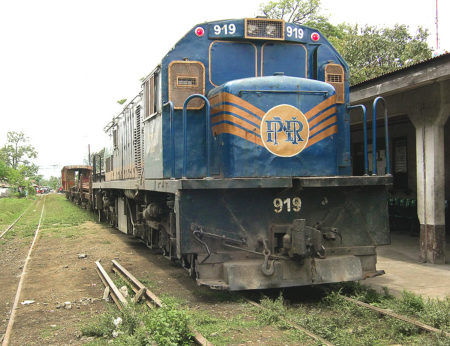
Throughout his campaign Mr Duterte vowed to embark on a massive infrastructure expansion and upgrade programme and this is also reflected in the administration’s first budget.
Infrastructure spending in the Philippines will increase 13.8 per cent – from $16.34 billion (P758.4 billion) in 2016 to $18.5 billion (P860.7 billion) – equivalent to 5.4 per cent of the 2017 Philippine budget. Of the total some $7.66 billion (P355.7 billion) is slated for major projects such as the construction and repair of road networks, railways, airports, and seaports.
Prior to delivering the budget to parliament for scrutiny Mr Diokno was quoted in local media reports as saying that the next six years will be the “golden age of Philippine construction, both public and private”.
The budget, declared “pork free” by its drafters, also see’s a big boost for the country’s agricultural sector with $2.59 billion (P120.5 billion) allocated for agriculture and rural development: a boom for the farming sector which has been declining for years due to low productivity and outdated farming practices.
With the Duterte administration in the midst of a bloody anti-drugs and crime war, public safety and order also received a big chunk of the proposed 2017 Philippine budget.
The Philippine National Police (PNP) will get $2.37 billion (P110.4 billion) to hire 10,000 additional police and to acquire more guns and patrol vehicles “for more effective crime suppression”, while the Armed Forces of the Philippines (AFP) will get $2.81 billon (P130.6 billion) for its counter-terrorism efforts.
In his budget address Mr Duterte emphasised that his government will intensify its efforts to stamp out drug trafficking and put a stop to terrorism, with Islamic State (IS), together with local acolytes such as Abu Sayyaf, seen as the biggest terrorist threat to the nation of 100 million people.
Mr Duterte’s focus on dealing with internal threats and terrorism is a marked departure from the administration of Benigno Aquino III which allotted more money towards the acquisition of modern weaponry to deal with external threats.
During Mr Aquino’s time, the government acquired US-made Hamilton-Class coast guard cutters, FA-50 light fighters from South Korea, Spanish-made CN-295 and C-212 transport planes, Polish-made W-3 multi-role helicopters, Italian-built A-109 light attack helicopters, Indonesian-made land platform docks (LPDs) and other weapons platforms.
The arms acquisitions were seen as targeted at China with which the Philippines is embroiled in a territorial dispute over Scarborough Shoal in the South China Sea (See: Achieving Harmony in The Wake of The South China Sea Ruling).
Describing the arms-buying spree of the Aquino administration as “wasteful”, Mr Duterte has said he is inclined to negotiate with China on the matter.
More Money For Mindanao
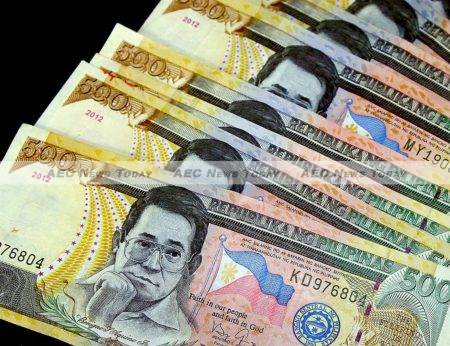
Having top national leaders in the new administration from Mindanao – Mr Duterte is the first Philippine president from Mindanao, while House Speaker Pantaleon Alvarez and Senate President Koko Pimentel are also Mindanaoans – has also translated into a boon for the residents of the Philippines second largest and southernmost major island.
Known as the “promised land” for its abundant natural resources, Mindanao has lagged behind neighbouring islands in development due to neglect by Manila and a lengthy period of conflict with Communist and a Muslim insurgency.
Mr Duterte has initiated peace talks with Communist and Muslim rebel groups in the area that is expected to finally end the highly-destructive conflict, a major factor in investors shunning the region despite its wealth of natural resources.
With the majority of senior national leaders in the past hailing from Luzon and the Visayas, Mindanao has historically received a smaller share of the Philippine national budget than its population of 22 million and importance as a mineral rich region and major producer of fish, rice, fruits, vegetables, and rubber would dictate. This is all set to change.
The 2017 Philippine budget will see $678.76 million (P31.5 billion) allocated for logistics and infrastructure improvements i Minadanao, a 61.5 per cent increase over the $420.26 million (P19.5 billion) it received in the 2016 Philippine Budget
The proposed 2017 Philippine budget is the biggest in the country’s history. And while it largely reflects the promise made by Mr Duterte during his run for the presidency, it remains to be seen if the lot of ordinary Filipinos will rise with its disbursement.
Related:
- Budget for change, but none for Charter change–Diokno (Philippine Daily Inquirer)
- Philippines’ President Rodrigo Duterte jacks up budget to fight crime (ABC)
- Duterte to Congress: 2017 budget must be pro-poor (Sunstar Manila
Latest posts by Jose Rodriguez T. Señase (see all)
- Philippines Morning News For March 10 – March 10, 2017
- Lao Morning News For March 10 – March 10, 2017
- Lao Morning News For March 9 – March 9, 2017
- Philippines Morning News For March 9 – March 9, 2017

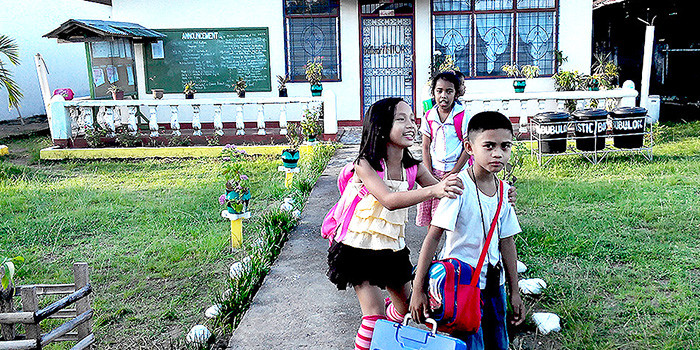

This is the first write-up of the Philippines government that is comprehensive and very informative of what’s going on there. I like and appreciate what Pres. Duterte is doing for the good of the Filipino people. I also appreciate what the writer has done to open to the whole world the good initiative of the President to improve the living conditions of the poor through infrastructure, education and health. Mr. President, kindly look also into our external defenses as we are bullied by a giant. I am a Filipino living in the U.S. and concerned about the land where I came from. Thank you, Mr. President and continue your concern for the Philippines. God bless you and the Philippines.